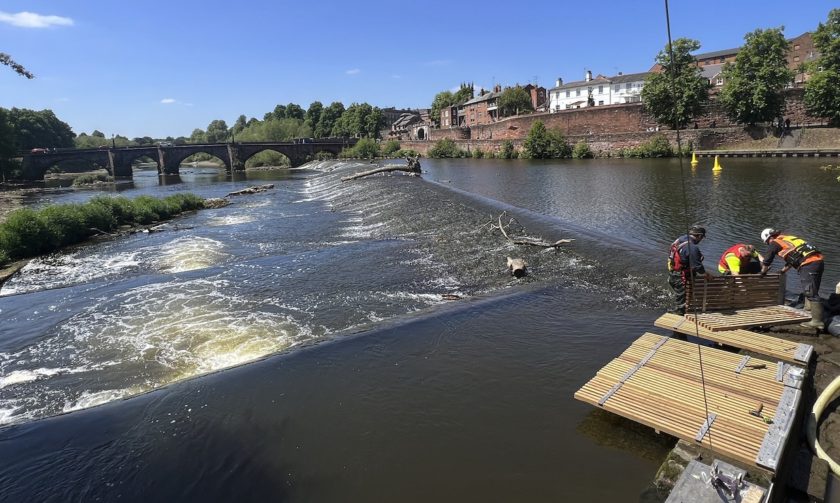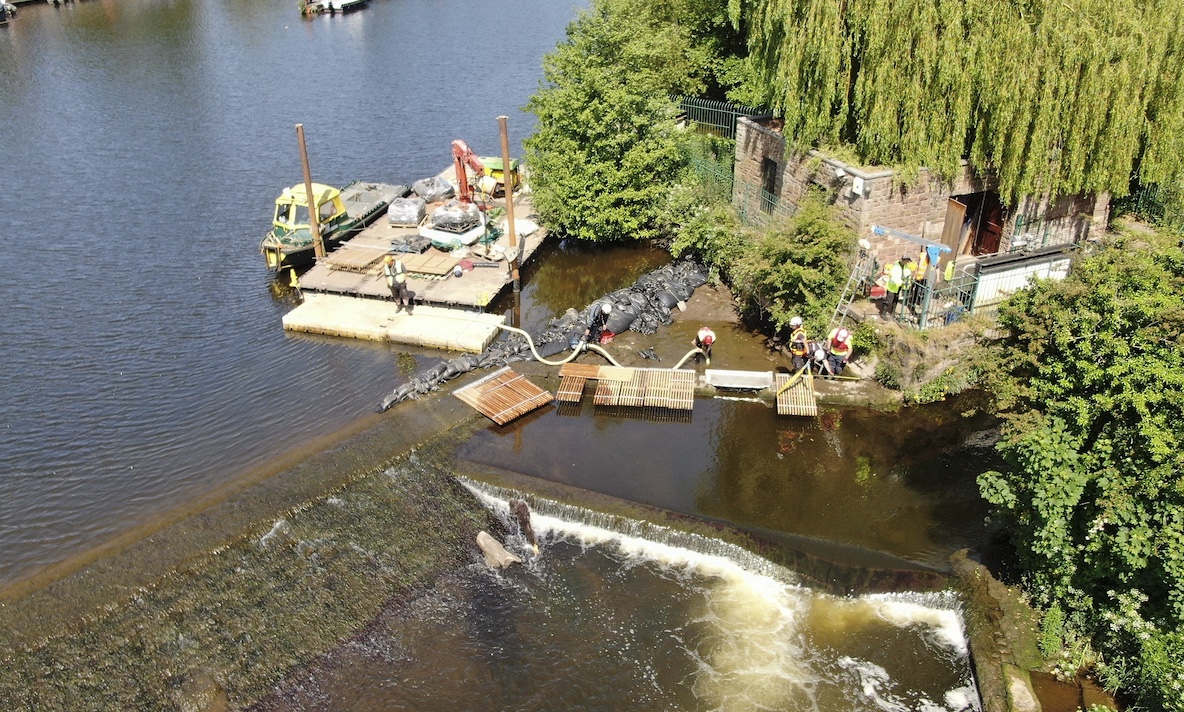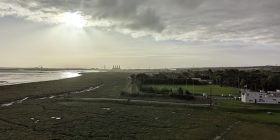River Dee restoration boosts juvenile fish survival

Young fish in the River Dee have exhibited a surge in survival rates following the completion of works at Chester weir, which now aids fish migration.
In a collaboration with the Environment Agency, the primary goal was to bolster downstream passage for juvenile salmon and sea trout.
This initiative is part of the grand LIFE Dee River project, which has Natural Resources Wales (NRW) at its helm.
Chester weir, situated at the River Dee’s tidal limit, stretches over 150 metres and stands 3 metres tall.
An existing gate, which was designated for canoes and fish, had remained non-operational for two decades.
Before these renovations, young fish faced significant delays during their downstream journey, primarily during the spring’s low flows.
With insufficient water to cross the structure, these fish would amass above the weir, becoming easy prey for larger fish and birds.
Local contractors, making use of pontoons for transporting materials, undertook the task of dismantling the old gate and its adjacent structure during low tides.

Replacing it is a new custom-made stainless-steel gate, conveniently operated by a winch on the bank.
Gethin Morris, the Senior River Restoration Officer for the LIFE Dee River project, expressed his enthusiasm: “Seeing the fish effortlessly navigate through the notch highlights the immediate benefits of this endeavour. Enhancing river connectivity, especially at structures like Chester weir, is paramount for fish migration. This significantly influences their spawning success.”
Rebecca Marsh of the Environment Agency added to the sentiment, noting the importance of fish being able to migrate to sustain their breeding populations.
The recent Chester weir modifications are part of a broader scheme of works across the entire Dee catchment, spanning over 1,800 km². The project is addressing manifold challenges like habitat loss, pollution, poor spawning grounds, and man-made hindrances, and the early results are promising.
Given the startling decline of freshwater populations, which have plunged by an average of 83% since 1970 as noted in the 2022 Living Planet Report, efforts like the LIFE Dee River project are indispensable. These initiatives ensure the sustenance of ecosystems for future generations to cherish.
This monumental project receives backing from various entities, including the EU LIFE programme, Welsh Government, Environment Agency, Eryri National Park Authority, and Dŵr Cymru/Welsh Water. It will remain operational until December 2024.
For more in-depth details on the project, individuals are encouraged to explore the project’s official webpage, or connect with them on social media at @LIFEAfonDyfrdwy.
Spotted something? Got a story? Send a Facebook Message | A direct message on Twitter | Email: [email protected] Latest News








